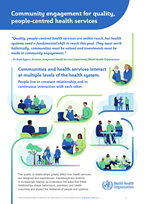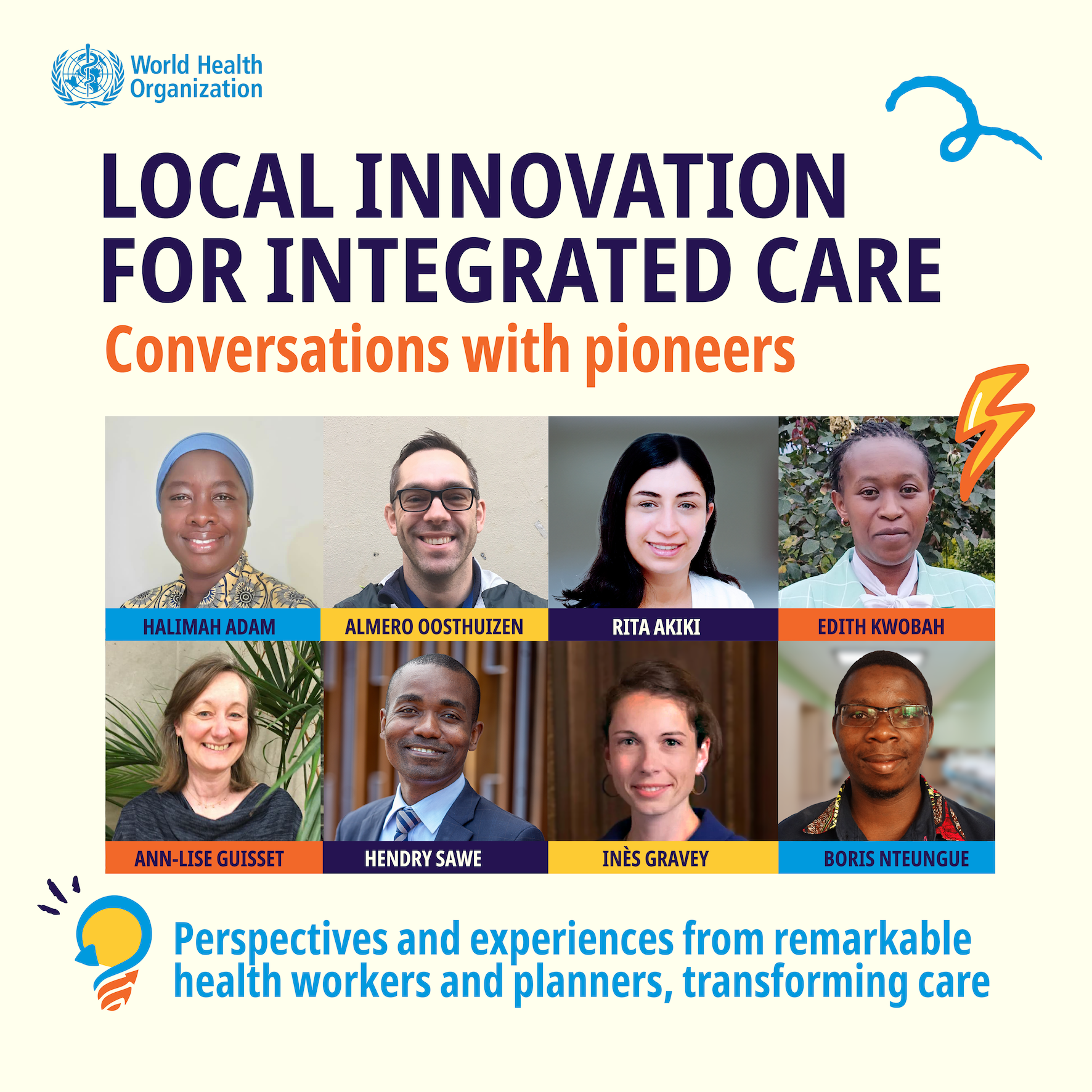/integrated-health-services-(ihs)/quality-of-care-(qoc)/relationality-in-community-engagement-report-cover-thumbnail.png?sfvrsn=149faac3_0)

Community engagement for quality
Healthcare facilities, rural health district clinic in Jemaluang, Mersing, Johor.
Putting people and communities at the heart of health and well-being
The health and well-being of individuals are deeply rooted in the communities in which they are born, grow, live, work, play, age and die. These connections lie at the core of integrated health services and person-centred care – spanning every stage of life and across generations.
Governments have long recognized the importance of engaging communities across sectors to deliver services that extend well beyond health care. The COVID-19 pandemic brought this need into sharper focus, exposing vulnerabilities and highlighting the urgent need for systems that work with people, not merely for them.
While “community” and “community engagement” are familiar concepts, redesigning health services and systems that truly partner with people remains an essential, yet challenging goal. In today’s post-pandemic and rapidly changing world, this approach is becoming increasingly important.
To address this, a policy report has been developed, revisiting foundational concepts of community and examining how a better understanding of the relational nature of community engagement can improve quality of health care, as well as health system performance. This report draws from a wide range of disciplines, emphasizing the importance of social connections throughout life—starting in childhood, through adolescence and into adulthood. It also highlights the need to incorporate lived experiences as vital data for achieving universal health coverage.
Developed for policy-makers and health service and programme managers who are responsible for designing and delivering health services across the life-course, at varying levels of national and local health systems, the report offers actionable guidance and scientific evidence to reshape health systems. It underscores the power of leveraging the interconnected networks of teams that vertically and horizontally span different levels of health systems to improve system performance and health outcomes.
Key takeaway
Lasting change happens when people drive their own transformation. Achieving this requires a cultural shift in health care — bringing about change that fosters trust and cultivates relationships that emphasize co-production.
Discover how investing in community engagement can contribute to quality health services and a healthier, more inclusive future for all.

The coronavirus disease (COVID-19) pandemic has exposed inequities and service delivery gaps in national and global health systems. These weaknesses...

WHO community engagement framework for quality, people-centred and resilient health services
This report is the output of a 3-day technical workshop to examine the links between community engagement, quality, people-centred and resilient health...

This training supports the implementation of technical standard operating procedures for contact tracing, social mobilization and safe and dignified...

Relationality in community engagement: its role in humanizing health and achieving quality integrated health services
A new report, entitled “Relationality in community engagement: its role in humanizing healthcare and achieving quality integrated health services” has been developed in collaboration with the Qatar Foundation for Education, Science and Community Development (QF) and launched at the Seventh edition of the World Innovation Summit for Health (WISH) taking place in Doha on 13–14 November 2024.
In the aftermath of the COVID-19 pandemic, community engagement has further resurfaced as a necessary condition, and a shared responsibility within health systems, for emergency preparedness, response and recovery efforts in global public health.
The new report introduces the background and current policy context for community engagement across different WHO regions. It presents an Integrated Change Framework (ICF) to embed and strengthen community engagement processes in health system functions and activities; explores eight selected country case studies, highlighting common success elements incorporated into the ICF; and concludes with recommendations for applying the ICF to improve health system performance.
/integrated-health-services-(ihs)/quality-of-care-(qoc)/relationality-in-community-engagement-report-cover-thumbnail.png?sfvrsn=149faac3_0)



